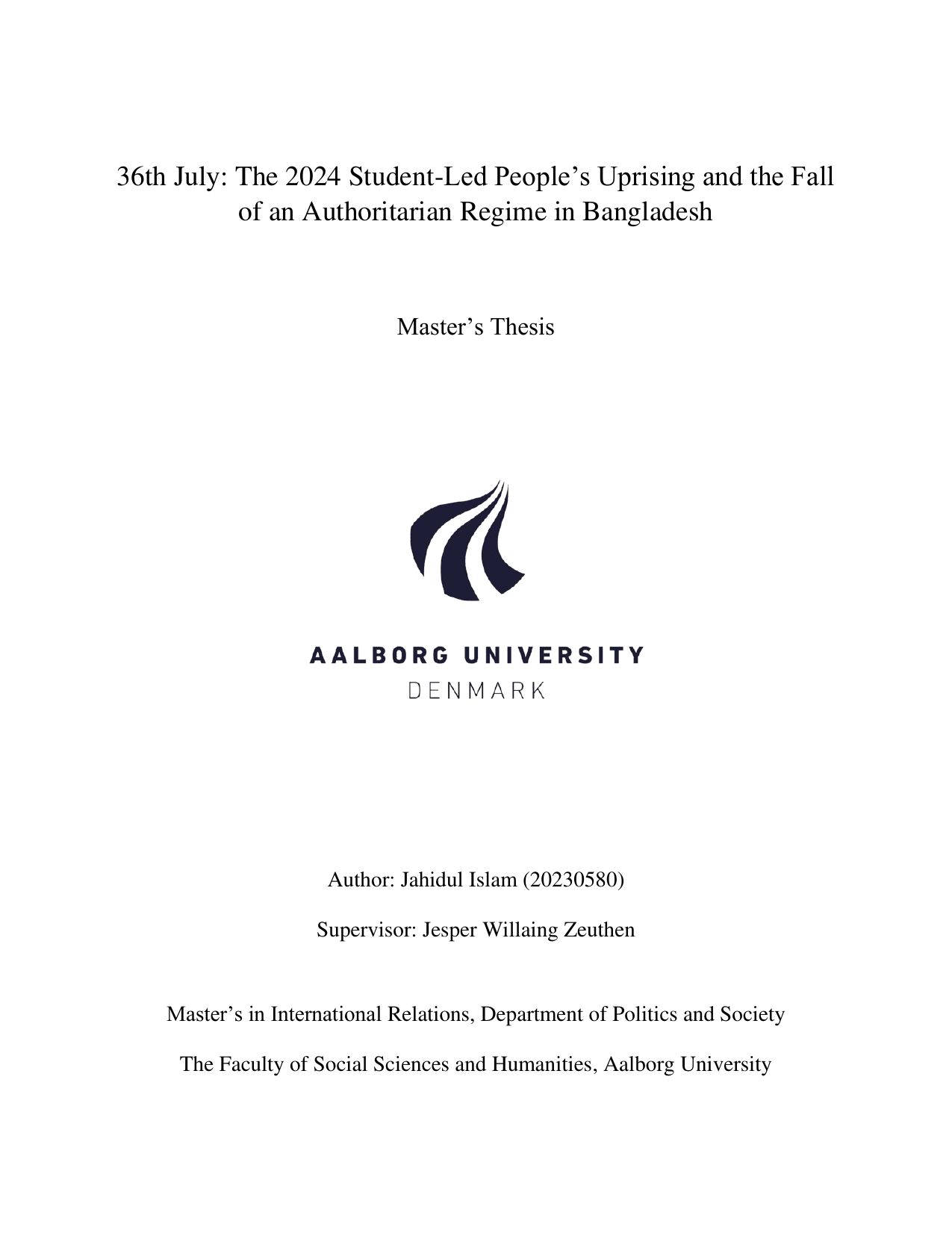
36th July: The 2024 Student-Led People's Uprising and the Fall of an Authoritarian Regime in Bangladesh
Author
Term
4. semester
Education
Publication year
2025
Submitted on
2025-10-15
Pages
53
Abstract
This thesis is dedicated to exploring how and why the student-led mass uprising in Bangladesh in July 2024 was able to overthrow a powerful authoritarian regime. What began as a technocratic movement to correct discriminatory government job quotas gradually transformed into a nationwide moral protest for justice and accountability. A qualitative single-case design was used, and causal reconstruction was implemented by process tracing. Data were collected from triangulated collections of international and national news, human rights fact-finding reports, and interviews with key actors and witnesses. The analytical framework was informed by political process theory, social movement theory, and authoritarian regime theory. Five interconnected processes were identified. First, protective umbrellas, including legal helplines and volunteer medical posts, were brought together to reduce existential risks and reframe collective disobedience as an act of civic virtue. Second, the reconstruction of justice was facilitated by the proliferation of legal idioms such as due process and equality before the law, through which the legitimacy of the uprising was discursively consolidated. Third, when teachers, lawyers, doctors, and journalists joined student organizations to transform an academic protest into a multifaceted civil uprising, student-citizen relations materialized. Fourth, accounts of repression reveal that coercive enforcement operated according to a conditional logic: indiscriminate violence in public appearances elicited moral responses, whereas covert repression achieved only temporary resistance. Fifth, hybrid organizations—a fragmented structure of personal coordination and public narrative—were created to ensure stability amid surveillance, internet blackouts, and intimidation. Through this coordinated dynamic, the authoritarian palace was decayed from within. When coercive forces faced a movement protected by moral legitimacy and institutional protection, elite solidarity collapsed and the regime collapsed. Theoretically, the study contributes to the refinement of political process theory by advancing the concept of opportunity activation and to authoritarian regime theory by explaining the failure of calibrated coercion in situations of legitimacy fulfillment. Empirically, it is demonstrated that democratic renewal in Bangladesh did not emerge from a sudden rupture but rather through the patient construction of moral order, protective infrastructure, and hybrid civic architecture.
Keywords
Documents
